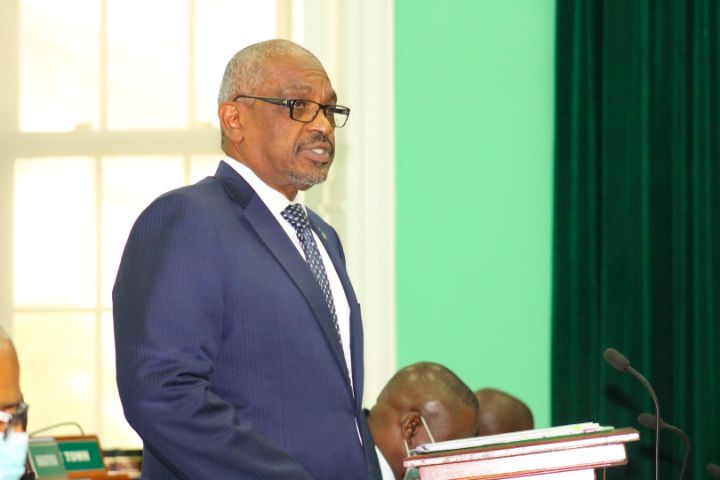|
From:TheBahamasWeekly.com Bahamas Information Services Updates
COMMONWEALTH OF THE BAHAMAS DEBATE ON 2020 FISCAL STRATEGY REPORT & PUBLIC FINANCIAL MANAGEMENT, DEBT MANAGEMENT, STATISTICS AND PUBLIC PROCUREMENT BILLS THE MOST HONOURABLE DR. HUBERT MINNIS PRIME MINISTER & MINISTER OF FINANCE MONDAY MARCH 1 2021 Mr. Speaker,
Last year I told Bahamians that we were in a fight against COVID-19 and a fight to save lives. Under our leadership the Country launched an all-out assault on COVID-19 and we have seen the positive results. I remind Bahamians, however, do not to let your guard down. Today we want to talk about another fight. Mr. Speaker, we are fighting for the Bahamian economy! We are fighting for Bahamian jobs and Bahamian businesses. We are fighting for our economic recovery and our economic growth. Although Hurricane Dorian and COVID-19 has hit us with some devastating economic blows, we will continue to fight for our economy and this is a fight that we will win. I want the public to rest assured that every member of my government is fighting for you and we will win this fight. It is my privilege to commence the debate in this honourable house of the 2020 Fiscal Strategy Report or 2020 FSR, as required by the Fiscal Responsibility Act, 2018. I would like to remind this honourable house that the Fiscal Responsibility Act was a transformative piece of legislation enacted by this government after years of talk by the Opposition. It is driving the very types of changes we will debate, starting today. The fiscal responsibility principles as stated in the Act are: achieving and maintaining a sustainable fiscal balance; achieving and maintaining prudent levels of public debt; and prudently managing fiscal risks. Along with the 2020 FSR, we will also debate a compendium of legislative reforms that are central to the government’s fiscal strategy, and more importantly, critical to good governance. These include the Public Procurement Bill, 2020; the Statistics Bill, 2021; Public Financial Management Bill, 2021; and the Debt Management Bill, 2021, which will bring about greater levels of efficiency, transparency and accountability.
Countries around the world with strong governance institutions have demonstrated they tend to do better economically over time. The reforms we are proposing are not only long overdue; they are the right thing to do. The former Christie/Davis administration had talked about these reforms. In some cases, they had even drafted bills. But as is their custom, they are long on pretty talk, but short on effective action. They had neither the will nor the toughness to make things happen. That is how we are different from them. We endeavour to do the right thing, even if it is not the easy thing. Mr. Speaker, My job as Minister of Finance is to keep the government’s fiscal house in order and to do what is necessary to secure the economy today, and for our children and grandchildren tomorrow. Throughout this debate, the public will hear big technical terms like fiscal targets and fiscal risk mitigation. Behind the jargon, what I am sharing today is the government’s plan: a plan to restore the nation’s financial health and build economic resilience beyond the coronavirus pandemic. It is a forward-looking three-year plan. It is a clear and credible plan. And it is a plan that meets the opportunities and challenges of governance today and into the future. Despite the hollow criticisms of the Opposition, this government is very deliberate and strategic in its approach to fiscal management. Last week I tabled a Communication on the Mid-Year Budget. This provided an update on the Resilient Bahamas Macroeconomic Plan that was presented at the time of the budget debate last June. It was a carefully designed plan to achieve three objectives: 1) to support the social needs and wellbeing of Bahamians feeling the weight of the pandemic; 2) to maintain economic stability in the middle of the crisis; 3) to plant the seeds for accelerated recovery. It was a plan that instilled confidence in the Bahamian people at the time.
It is a plan that has since saved lives, protected public and private sector jobs, delivered millions in relief to vulnerable families, communities and businesses, and kept the economy afloat despite the most severe economic calamity we have faced in our modern history
...TO CONTINUE SEE ATTACHED
|
